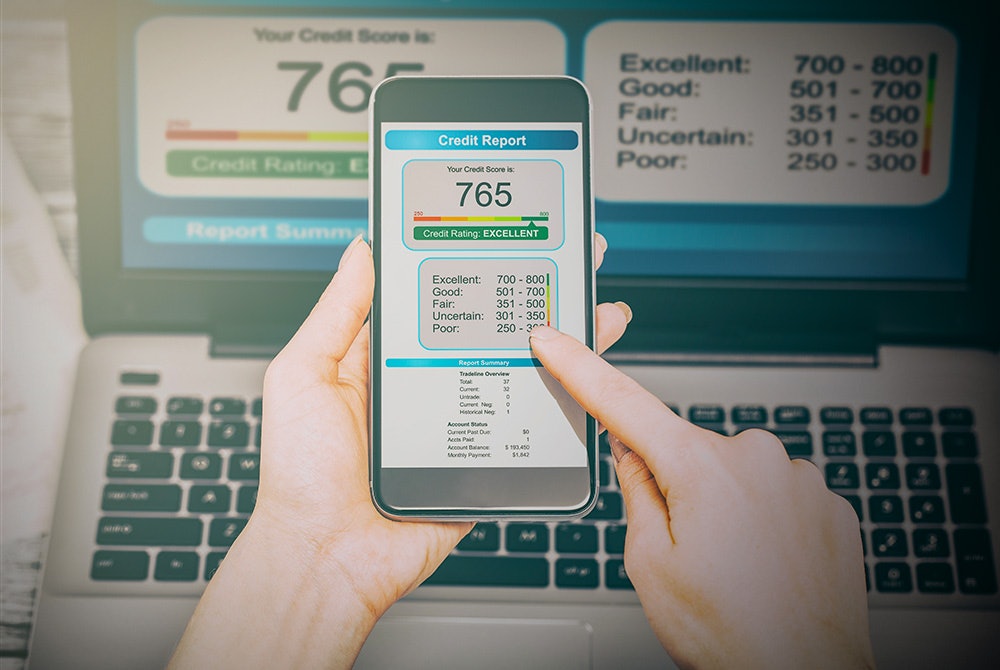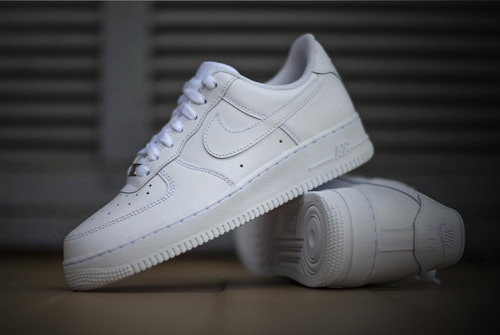- 1. Be Aware of Your Situation
- 2. Check for Inaccuracies
- 3. Protect Yourself From Fraud
- 4. It's Free
- 5. Helps You Know How to Improve Your Score
- How to Check Your Credit Score
- How to Check Your Credit Report
Your credit score may be out of sight out of mind, only becoming important when you want to buy a new car, apply for a credit card, or start looking for a house. But it really shouldn't be. Regularly checking your credit score can help you in many ways, including preparing you for significant purchases and even protecting you from theft.
Here are five important reasons why you should be checking your credit score and report regularly.
1. Be Aware of Your Situation
This may seem like a silly reason to check your credit score, but it isn't. Knowing where you currently stand can help you better prepare for the future. Even if you don't plan on getting a car loan any time soon or you aren't looking for a new place to live, the future is hard to predict. If your situation changes suddenly, you might need to look for a new home, and then it could be too late to try to improve your credit score.
Knowing your credit score (or at least the ballpark range) will also open you up to opportunities that you otherwise wouldn't even consider. For example, if you're buying a new couch, you could be offered an interest-free loan because you have a high credit score. If you don't know what your range is, you might not even consider this offer.
(Note that there are different types of credit scores. For example, you'll notice significant differences in scores that your car dealership pulls versus your mortgage lender.)
2. Check for Inaccuracies
If you fail to check your credit report for years at a time, you will have no idea what information creditors see or if there are inaccuracies. If you recently paid off a purchase, you want to make sure that that is reflected appropriately on your report. If you had an overdue bill but paid it recently, you'll want to ensure that your credit report has been updated and there is no longer an outstanding bill on your record.
Mistakes can happen, and when they occur on your credit report, they can negatively affect your score.
3. Protect Yourself From Fraud
This is perhaps one of the most important reasons to check your credit score and report regularly. Unfortunately, technology has made it easier for hackers and scammers to steal your information, whether through phishing techniques, data breaches, or even just following you on social media. Armed with your data, these criminals can steal your identity and take out lines of credit in your name.
If you fail to monitor your credit score, you won't know if someone has applied for a loan in your name or now has a credit card with your name on it that they're using for their own purchases. If your credit score has changed significantly (mainly if it's gone down) and you're unsure why you should take a closer look at your report and look for signs of fraudulent behavior.
Protect Your Credit
If you think your identity has been stolen, you should consider placing a fraud alert on your credit report or even completely freezing your credit. This will stop scammers from taking out lines of credit in your name, saving you a lot of headache and stress later on—identity theft can take years to recover from.
4. It's Free
These days it's easy to check your credit score, with most banks giving you free access without it affecting your score. Although these scores (e.g., FICO score) aren't as accurate as "hard pulls" that creditors make, they're a good indication of your range, and you can use them to look for significant changes.
In addition, it's free to get a copy of your full credit report once a year. This report will have information about everything, not just your score. From what loans you're currently paying off to how many times creditors have accessed your report (and which creditors they are).
5. Helps You Know How to Improve Your Score
Knowing your credit score can help you understand what you need to do to improve it and help you better prepare for the future. Your report will tell you what factors are affecting your score, such as the:
- Length of time your accounts have been established
- Time since your last account was opened
- Number of accounts you have with balances
- Number of hard credit pulls you've had recently
Once you know what's affecting your score, you can take steps to remedy them or at least plan better. For example, if having too many accounts with balances is causing your score to go down significantly, you should work to pay off these balances.
The main things that affect your credit score include:
- Payment history: Missed payments and overdue balances negatively impact your credit score and bear the most weight. To increase your credit score, you want to make sure you're paying all of your bills on time.
- Money you owe: Your credit score changes based on how much credit you have available. For example, if you're using 90% of all credit you have, your credit score is likely to go down. It's not bad to use your credit, but you should make sure you're paying off your balance as much as possible.
- Length of your credit history: The longer your credit history, the higher your credit score. When you're first starting to build your credit, you'll notice that this has a significant impact, but after a few years, your score will increase.
- Your credit portfolio: The more diverse your credit portfolio, the better it is. By portfolio, we mean the range of types of loans and credit you have. For example, if you have a credit card, car loan, and student loan, your score may be higher than someone with a single credit card.
- New lines of credit: If you're opening many new accounts, this can negatively impact your score. It's best to try and leave sometime in between opening new accounts.
- Credit inquiries: The number of "hard inquiries" made on your credit report can decrease your credit score. These inquiries are made by creditors when you apply for credit, such as when you apply for a loan or credit card.
How to Check Your Credit Score
There are several ways you can check your credit score, including:
- Via your bank
- Via one of the three credit bureaus
- Using free credit monitoring services
Check Your Credit Score via Your Bank
These days, many banks and credit unions will give you a free FICO score when you log into your account. This is usually a free service and won't affect your score at all since it's not a "hard credit pull."
Check Your Credit Score via a Credit Bureau
Creditors use three credit bureaus in the U.S. to get your score and credit reports—TransUnion, Equifax, and Experian. You can buy your credit score directly from any of these three bureaus at any time.
Use Free Credit Monitoring Services
Various free credit monitoring services help you keep track of your score and look out for any signs of fraud, such as:
- Credit Karma
- Mint (by Intuit)
- CreditWise (from Capital One)
- Experian free credit monitoring
How to Check Your Credit Report
Checking your full credit report isn't quite as easy as checking your credit score, but you should keep an eye on it, especially if you think your identity has been compromised. You can request a free credit report every 12 months from each of the credit bureaus or order it from AnnualCreditReport.com.
You'll need to provide your:
- Full name
- Date of birth
- Address
- Social Security number (SSN)
How to Review Your Credit Report
Once you get a hold of your credit report, there are several things you should be paying close attention to, including:
- Your personal information: Make sure your name, address, phone number, etc., are all correct. Scammers can steal your identity and update this information, so you're not alerted to any fraudulent activity.
- Open and closed accounts: Make sure you recognize all accounts on your report and that the statuses of all of them are correct.
- Credit pulls: Take a look at all inquiries made against your credit report and make sure you authorized each of them.
If you notice any errors or signs of fraud, contact one of the three credit bureaus and request to have them correct the information.











Comments